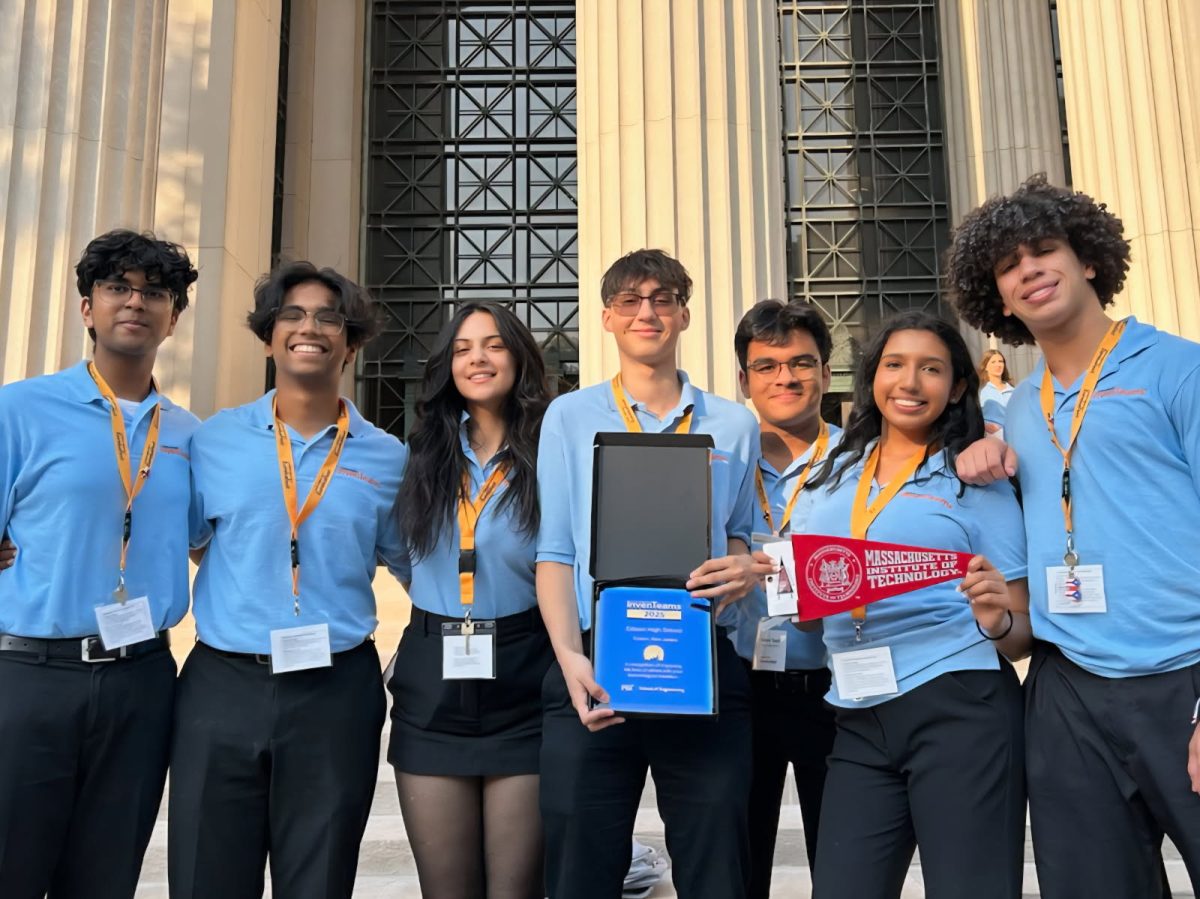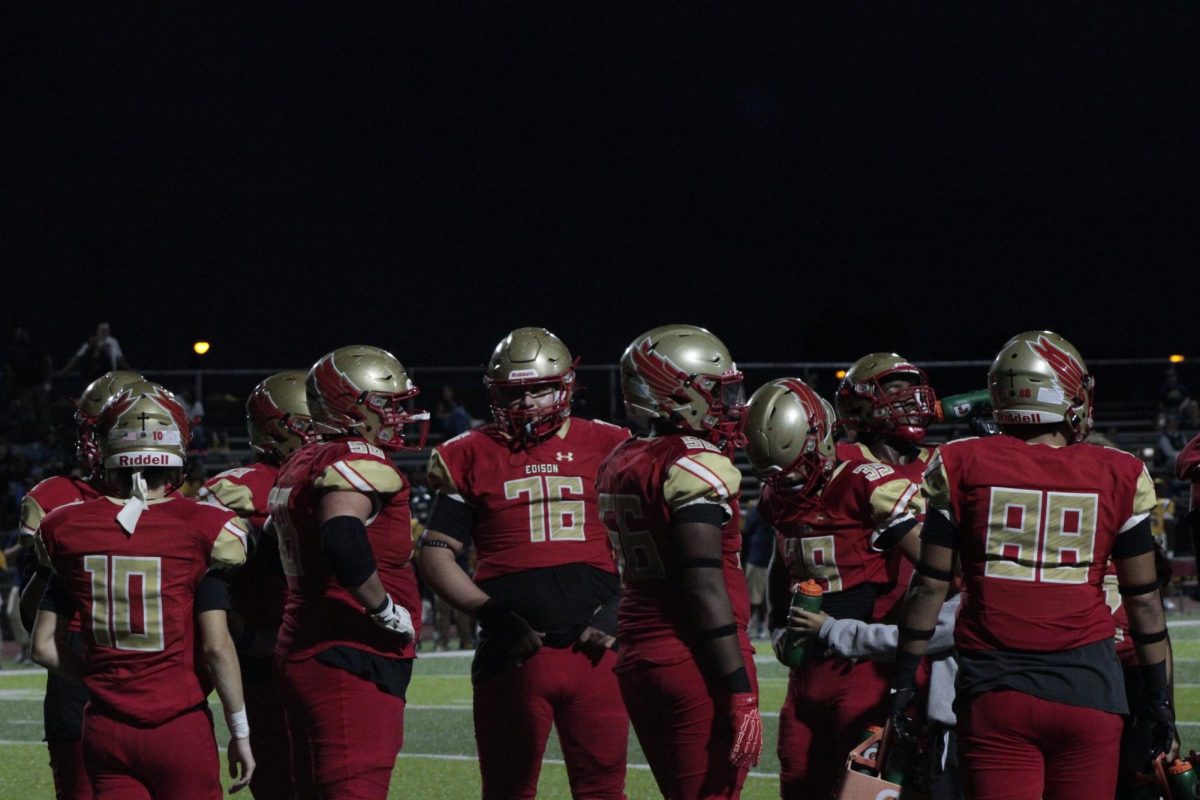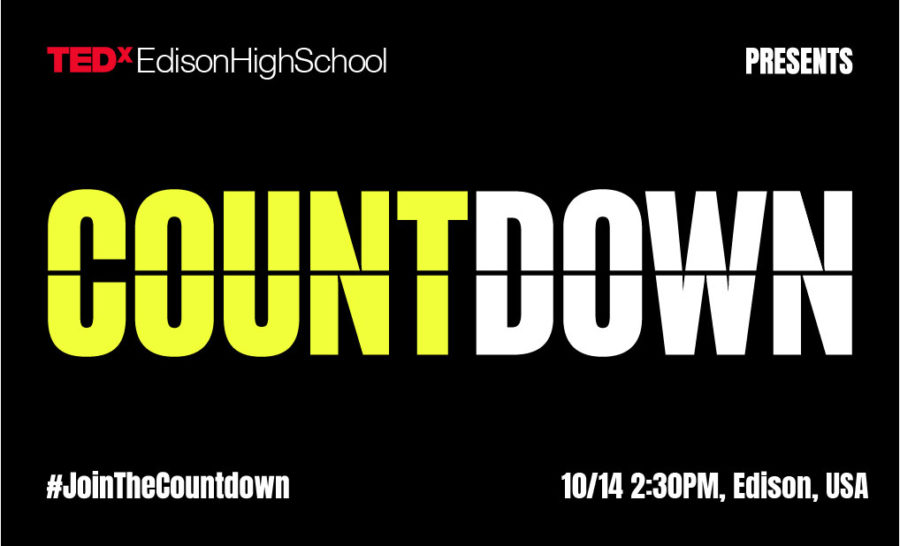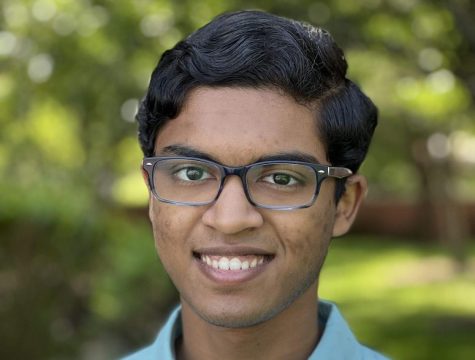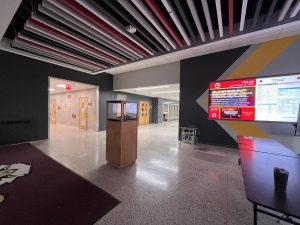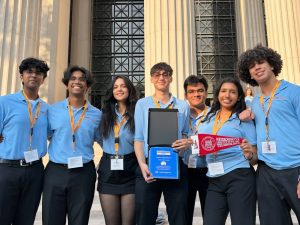TEDxEdisonHighSchool: Combating Climate Change
November 25, 2020
Edison High School’s iSTEM club curated a virtual TEDx event on October 14, 2020. The event, part of a series of TEDx events entitled “TEDx Countdown” featured live talks by Gregory Gorman, the chair of the NJ Sierra Club, and Justin Paik, a member of Columbia University’s Engineers Without Borders program. The virtual presentation also included pre-recorded talks by Angel Hsu, an Assistant Professor of Social Sciences at Yale-National University of Singapore, and Rebecca Henderson, an economist and professor at Harvard Business School who rounded off a star-studded speaker list.
TEDx Edison High School began with a pre-recorded message to the participants of all TEDx Countdown events, which asserted the importance of establishing sustainable, clean energy infrastructure in order to increase the longevity of natural resources and help combat the connected social issues of inequity between health. This video pointed to some aspects of life which must change in the near future to prevent apocalyptic outcomes: energy, transport, industry, and natural resource misuse, among others.
The first live speaker was Gorman, whose talk discussed the history of efforts to combat climate change. He referred constantly to the choice of “planet vs. profit,” explaining that older businesses chose to continue pursuit of money with non-sustainable energy sources, while more recent agreements and decisions, like ones by a UN council called to implement sustainable energy measures, chose to preserve the planet and its resources.
However, in modern times, sustainable energy has become profitable, so companies do not have to choose one or the other: they can fulfill both needs.
Gorman also mentioned novel plans to reform energy sustainability, like the Green New Deal which strives to establish net zero emissions in the US by 2050, and ways in which individuals can contribute to combating climate change, such as switching to hybrid cars or using solar power. In a Q&A session after his speech, he responded to several questions from the audience, including questions about green energy’s reliance on mining for precious metals.
He said that this reliance is a major drawback of current sustainable technologies, but also pointed out new ways people attempt to bypass the need for mining, like using sodium instead of lithium in batteries, and storing potential energy by pumping surplus water uphill and harnessing its energy as it flows back (e.g. Dinorwig Power Station, Wales). In sum, Gorman’s extensive talk explained solutions to the climate crisis within reach of the average individual.
The second live speaker, Paik, presented a more personal aspect of climate change involvement. In his speech, he recalled feeling disconnected from this cause in his childhood, given that he had no concrete experience with any of the undesirable circumstances which climate change would supposedly bring. However, upon becoming involved in a water project in Morocco as a part of Columbia University’s Engineers Without Borders program, he felt inspired to combat the global issue.
The project involved constructing a solar-powered water pump and tank to provide clean water for a community in the area. Upon participating in this effort, he became more involved in the university’s EcoReps program, which strives to make the university a more environmentally-friendly institution. Through this program, Paik helped organize a Columbia Youth Climate Summit, where students from many educational institutions came to discuss climate change, as well as the measures that their respective schools and communities could take to combat it.
In his talk, Paik also argued that the common perception of the climate change issue, i.e. the protesting and petitioning that one often sees on news media, can be counterproductive. He asserted that “we are in a climate change crisis, not because people are protesting on the streets, but because protesting on the streets has become all that some people care about.” He suggested instead that one can combat the crisis by first sharing their personal stories pertaining to the issue and assisting others in their search for their own connection.
“I think this experience showed me that there’s more to the world than Edison, NJ and opened up my mind to a world of possibilities, and I hope the attendees also got this message of opportunity as well.”
VASUMATHI VENKAT ’22
In the first of two pre-recorded talks, Hsu exemplified the possible repercussions of climate change. For example, Shanghai would cease to exist if there is another 3 degrees Celsius increase in global temperature. She declared that urban centers must take a more active role in combating the climate crisis.
Many cities, through deregulation and corruption, are contributing to the same global issues that could put them underwater within a few decades. Thus, urban areas must be at the forefront of restricting environmentally harmful practices. Cities like Copenhagen and Glasgow have already made commitments to achieving net carbon neutrality in the near future, and Bogotà has implemented a large network of bicycle routes, precedents which must continue among other cities if humanity is to halt the progression of climate change.
In her talk, Hsu also considered inequity as a concern in urban development of green technology.
“Where you live in a city, your income, your race—research is showing that these factors can determine your access to environmental benefits like green space and sustainable transit,” Hsu said, “and they can also determine your share of environmental burdens like air pollution and climate change.” She emphasized the need for cities to take a holistic approach to becoming more sustainable and leading the way in fighting climate change.
Believing that efforts to stop climate change can start with well-regulated business, the second pre-recorded speaker, Henderson, linked the issue to economics. She asserted that the current cheap price of fossil fuel power does not take into account the cost of the damage it causes, and urged capitalism to account for these costs in determining the true price of such a commodity.
Another issue is widespread behind-the-scenes corruption in business. Selfish corporations cause a great amount of danger by evading regulations, and she urged that publicization of this massive corruption is necessary to mitigate it.
Henderson presented an example: a garbage company engaged in unlawful trash-disposal practices, but who was exposed by a competitor who did follow the regulations. Eventually, the unlawful company suffered due to the unpopularity, and garbage companies in the area began to follow the regulations properly.
This is a realized example of Henderson’s view of climate reform— business regulating itself. Large businesses have used their profits to bribe and influence politicians to decrease environmental friendliness standards, yet it is in businesses’ best interest to acknowledge and combat the crisis at hand.
“The truth is business is screwed if we don’t fix climate change. It’s going to be hard to make money when the great coastal cities are under water and millions of angry people are migrating north as the harvests fail,” Henderson said. “It’s going to be tough to keep free enterprise alive if most people believe the rich and the white are using it to trash the planet for their own benefit.”
A crucial aspect of this TEDx event, apart from the talks, was small-group discussion, dubbed “TEDx Circles,” where participants discussed the content of each talk, brainstormed potential local solutions to the issues at hand, and engaged with the live speakers about their experiences and ideas. This element helped tie loose ends together after each talk, and allowed the audience to reflect on the experience.
At the end of the event, Gorman expressed his gratitude for participation in this event, saying that it helped people recognize that climate change is an existential threat for humanity and many other species, but also that “people from all walks of life around the world are working to fix it.”
Paik was also grateful for the event, and applauded the curation team for their effort, relating it to his experience organizing the Columbia Youth Climate Summit.
Overall, the participants and organizers voiced the common view that this TEDx event was a great success. The cooperation of these various organizations and universities for this event is a promising sign that those of differing backgrounds can unite in the struggle against climate change. The great deal of planning before the event has allowed a meaningful discussion regarding the future to take place virtually. Ultimately, the same coordination that was required to run this unique event is crucial if the world is to confront global warming.
“[I am] definitely most proud of being able to create a virtual community gathering, which is something that people struggle with during COVID,” said Sunrit Panda ‘21, president of the iSTEM club and curation team for the event.
The team was able to bring TEDx events down to earth for high school students, most of whom viewed such events as far above their potential to participate. Panda was also proud to be able to lead this team toward a measured goal, despite a time constraint of just over two months, and a long, iterative process for preparing the event.
Vasumathi Venkat ‘22, another member of the curation team and iSTEM officer, voiced similar sentiments.
“I think this experience showed me that there’s more to the world than Edison, NJ and opened up my mind to a world of possibilities, and I hope the attendees also got this message of opportunity as well,” Venkat said.
Looking to the future, the iSTEM club aims to plan more events that inspire students to become more meaningfully involved in their community.






































